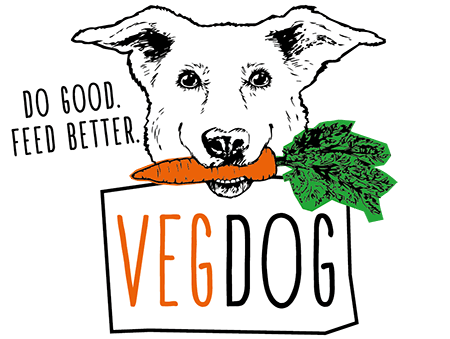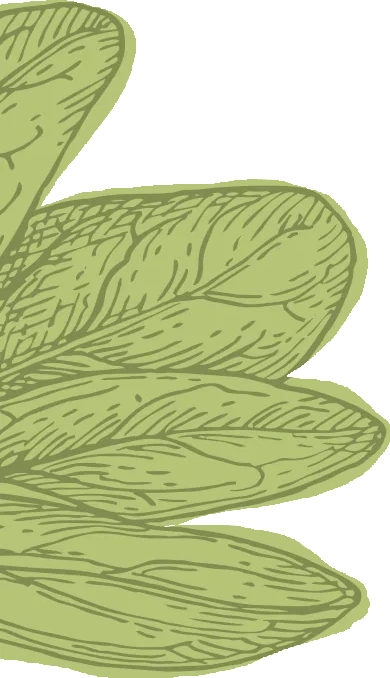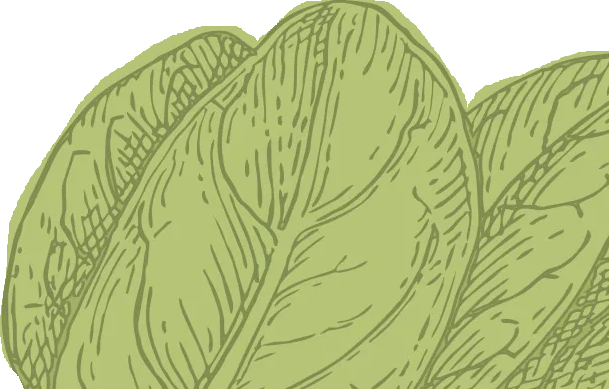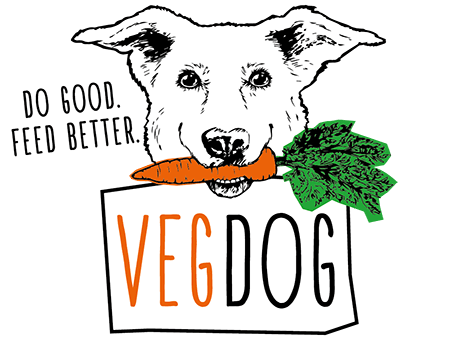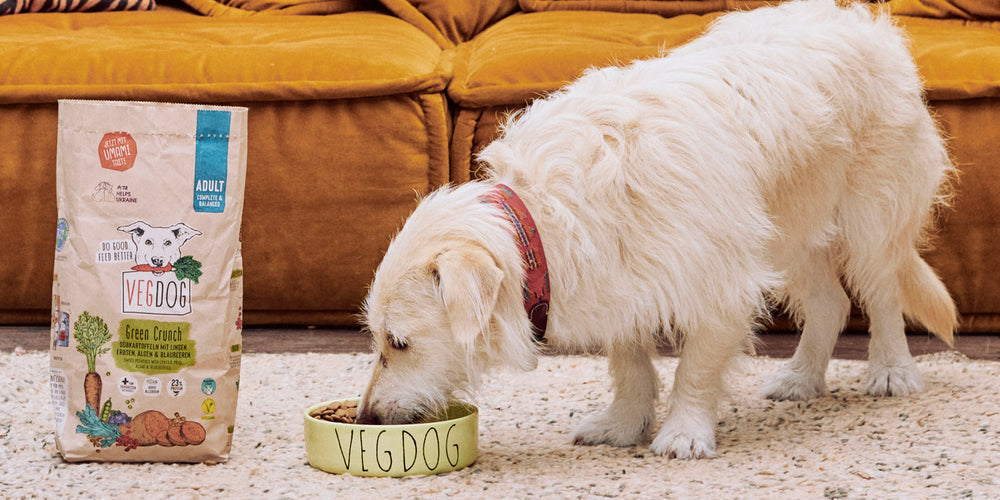
dog food for overweight dogs
The way to a man's heart is through his stomach: How to recognize and combat obesity in dogs
 Author: Carla Steffen
Author: Carla Steffen
 Proofreader: Veronika Hajek
Proofreader: Veronika Hajek
Updated: 01.10.2024
Published: 25.04.2024
As the saying goes: "The way to a dog's heart is through its stomach" - this also applies to our four-legged friends. But some dog owners take this saying a little too seriously: They spoil their darlings and can hardly resist the sweet dog look at the dinner table. According to a recent study, up to 65% of dogs in Germany are overweight. This can not only have health consequences, but can also drastically reduce the life expectancy of your furry friend. Behavior can also be significantly influenced by obesity and reduce life expectancy (Kealy et al. 2002, German et al. 2012b, Yam et al. 2016), in smaller breeds such as Yorkshire Terriers even by almost three years (Salt et al. 2019). It is therefore important to recognize obesity in dogs early and to counteract it with suitable dog food and plenty of exercise.
With us you will learn what the causes of obesity are, how you can recognize it in your dog and what you can do about it.
The most common causes of obesity
Obesity in dogs is primarily caused by too much energy intake and too little exercise. The following factors can lead to weight gain, among others:
- Too much food or too many treats in between
- Dog food that is too high in energy
- Various diseases (e.g. hormonal diseases, arthrosis, ...)
- castration (increased appetite due to hormonal changes)
- Changing Energy Requirements in Old Age
- lack of exercise
- Genetic predisposition in certain dog breeds such as Labrador Retriever, Beagle, Basset & Co.
How do I know if my furry friend is overweight?
Are you not sure whether your furry friend is overweight and you should switch to a diet food? Then the so-called "Body Condition Score" will definitely help you. This was developed by veterinarians and is a visual scale to determine the nutritional status of dogs.
In a dog of normal weight, the ribs and vertebrae should not be visible, but should be easily palpable. In addition, the waist should be visible and the chest should be covered with a minimal layer of fat. When viewed from the side, an ascending line should also be visible from the rib cage to the groin. If this is the case, you don't need to worry, because your furry friend is at an ideal weight. However, if there are several fat pads and the above-mentioned visual characteristics are not visible, your four-legged friend is suffering from obesity.
Our tip: If you are unsure, you can have your pet's body condition assessed at a veterinary practice using the Body Condition Score (BCS).
Obesity in Dogs: Health Consequences & Reduced Life Expectancy
Persistent obesity not only leads to serious health problems, but also reduces the life expectancy of your beloved furry friend. It is therefore particularly important to act as quickly as possible and switch to a special dog food for weight loss. A diet food for overweight dogs can improve your four-legged friend's quality of life. After all, overweight dogs suffer from a variety of health problems and secondary diseases. These include:
- Overload of the joints (e.g. osteoarthritis)
- stress on the cardiovascular system
- impaired breathing
- diabetes mellitus
- fatty liver disease
- Increased skin diseases
- impairment of the immune system
- Increased anesthesia or surgical risk
- Increased tumor risk
- Declining life expectancy
Which dog food for overweight dogs?
If your loyal companion is overweight, you should first change his diet. There is special diet food with a low energy and fat content and a high protein and fiber content that can help your dog lose weight. The food for dogs to lose weight usually contains fewer calories, but all the important nutrients such as vitamins, minerals and trace elements.
Under no circumstances should you simply reduce the amount of normal food, as this can lead to a lack of vitamins and minerals. Low-energy dog food, on the other hand, has been specifically developed for gentle weight loss and satisfies your dog despite lower energy intake.
What does optimal weight loss look like for dogs?
Just like us humans, our four-legged friends shouldn't lose too much weight too quickly. A guideline is therefore 0.5 to 1% of body weight per week. However, you can only achieve this with a well-adjusted diet and high-quality dog food for weight loss. It is best to work with your vet to create a feeding plan or a weight curve with regular measurement points and get advice on a suitable diet dog food.
Low-calorie treats for in-between meals
You don't want your furry friend to have to go without treats despite being overweight? Then we have a few good solutions for you:
Although you should avoid giving additional treats, you can use the main food as a treat and deduct it from the daily ration. This is an effective way to prevent additional energy without having to do without treats. If your furry friend has already lost some weight, you can also give him some cucumber or zucchini now and then. Most four-legged friends love fruit and vegetables. You can find out which types are suitable for dogs in our blog post .
Our vegan VEGDOG snacks are a low-calorie alternative to the usual chewing bones made from beef etc. Here you will find healthy and tasty treats for training, as well as for dental care. All of our dog snacks are purely plant-based and free from unhealthy additives such as artificial attractants and colorings.
Reducing excess weight in dogs: What else can I do?
In addition to changing the dog's diet, there are other ways to help your dog lose weight. Among other things, additional exercise has a positive effect on your four-legged friend's weight. It is advisable to increase exercise gradually to prevent injuries. Exercise in the water is particularly gentle on the joints. This not only strengthens your dog's muscles, but also burns fat and calories.
Sufficient exercise & special dog food for weight loss: The key to healthy weight loss
Dogs who are overweight face health challenges that can affect not only their well-being but also their life expectancy. However, obesity is not an inevitable reality, but a problem that can be addressed with the right measures.
The keys to managing obesity in dogs are a balanced diet, regular exercise and veterinary care, or rather, your consistency.
FAQ
Why is my dog gaining weight despite eating less food?
Dogs can become overweight despite eating little if their calorie intake exceeds their energy expenditure. If your dog has more energy available than it needs, the body stores it in the form of fat deposits.
What can I feed my dog to help him lose weight?
To help your dog lose weight, choose a high-quality, low-calorie dog food. However, make sure that your four-legged friend receives all the essential nutrients and his basic needs are met.
How long do overweight dogs live?
According to a study, overweight dogs live up to two and a half years less than dogs that have had an ideal weight their entire lives. For this study, data from more than 50,000 animals was collected and evaluated over two decades.
